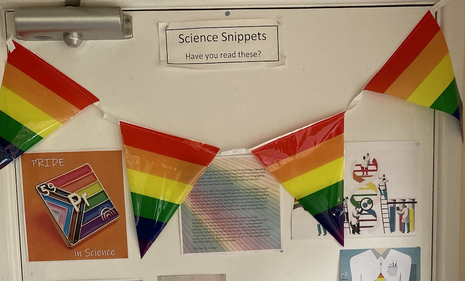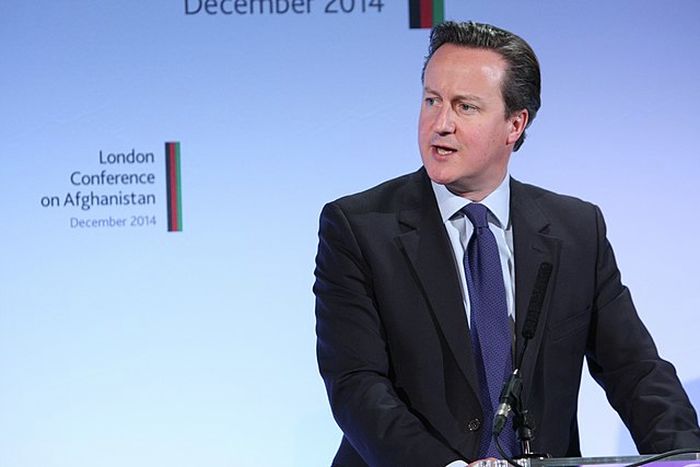Section 28: 20 years since repeal, how much has really changed?
Section 28 was repealed under Tony Blair 20 years ago, but its legacy still lives on in the school experiences of queer children.

A clause of the Local Government Act (1988), Section 28 stated that local authorities couldn’t ‘intentionally promote homosexuality’ or promote ‘the acceptability of homosexuality as a pretended family relationship.’ It was repealed on the 18th November 2003.
The Section forced teachers to remain closeted, meant school libraries and teaching materials were censored, and created hostile environments for queer students.
A huge amount of progress has been made over the last 20 years. In 2020, the government updated its Relationships and Sex Education (RSE) Guidance, encouraging a more inclusive approach to LGBTQ+ education in schools. Schools across the country participate in School Diversity Week, and young people now benefit from positive representation of LGBTQ+ relationships in books and media, seen for example in the ground-breaking success of Heartstopper.
“I was in the unlucky 42%.”
But Section 28 lingers. Its language and the toxic rhetoric that surrounded it are not things of the past. In 2021, Just Like Us found that only 58% of LGBT+ pupils felt safe at school on a daily basis, compared to 73% of non-LGBT+ pupils. I was in the unlucky 42%.
My headteacher and other members of my school’s leadership were not supportive. The language of section 28 was central to this. As a Catholic school, my school received diocesan (local church authority) guidance. I was told this guidance stated that the school could not ‘promote’ LGBT content.
During my sixth form years, the student-led pantomime was reviewed line by line and edited due to a rumour of ‘lesbian themes.’ There was one line where a princess asked another princess to the ball. I was asked to write an article for the student magazine on the history of the pride flag. Its publication was blocked due to its ‘inappropriate’ topic. A display about LGBT scientists was removed for a school open day and never returned after a parent complained about it.
In 2021, my school’s RSE policy was updated. A clause was added stating that ’LGBT young people should feel included and recognised at school so that they are able to build safer, more informed relationships, and will have more access to support.’ It went on to say, ‘we are committed to an LGBT+ inclusive curriculum.’ That was untrue. After a consultation with parents, that clause was removed. This was the only edit made to the entire policy.
I found safety in the time I spent out of school with my beautifully queer friends at the local gay pub, attending protests, and watching heartstopper. I created my own safe spaces, but I could never compensate for the fear I felt in school.
A few teachers were wonderfully supportive, and I will never forget how important that was to me. I delivered a couple of assemblies on LGBTQ+ history when I was permitted to, but I was repeatedly informed by my head teacher that these were followed by a torrent of complaints.
This is not unusual. Last year, a talk due to be delivered by Simon James Green at John Fisher boys’ school was cancelled due to diocesan action. In 2019, there were weeks of protests in Birmingham over the teaching of LGBT relationships in primary schools. The USA has seen more extreme action in the form of Florida’s ‘Don’t Say Gay’ Bill and the banning of LGBTQ+ books.
Section 28 is still with us, despite being gone from the statute books. Perhaps most disturbingly, and most visibly, we can see its legacy in the treatment of trans students today.
In 1987, Margaret Thatcher used her speech at the Conservative Party Conference to say, ‘Children who need to be taught to respect traditional moral values are being taught that they have an inalienable right to be gay.’ According to Thatcher, these students were being ‘cheated’ of a ‘sound start in life.’
1987 saw the highest levels of anti-gay attitudes ever recorded in the British Social Attitudes Survey, with 64% of respondents stating that they felt sexual relations between two adults of the same sex were ‘always wrong.’
“Last month, Rishi Sunak used the Conservative Party Conference to push an eerily familiar rhetoric.”
Last month, Rishi Sunak used the Conservative Party Conference to push an eerily familiar rhetoric. Sunak stated, ‘it shouldn’t be controversial for parents to know what their children are being taught in school about relationships.’ He went on to say, ‘we shouldn’t get bullied into believing that people can be any sex they want to be. They can’t. A man is a man, and a woman is a woman. That’s just common sense.’ It feels as though someone has put a mirror to a history book and we are living in the reflection.
In August 2023, a YouGov poll showed that the percentage of people who hold negative feelings towards the trans community was up from 16% in 2021, to 25% in 2023. This was not inevitable. It reflects the emergence and acceptance of yet another moral panic over the acceptance of young queer people.
Section 28 caused immense damage in the first instance, and a generation of queer students were harmed because of it. I was harmed because of it. But that harm does not have to continue.
Progress has been made over the last 20 years, but it must be seen against the backdrop of increasing anti-trans hate, and anti-queer hostility in Britain more widely. We collectively have the power to resist history repeating itself, we just have to realise it.
 News / Cambridge students set up encampment calling for Israel divestment6 May 2024
News / Cambridge students set up encampment calling for Israel divestment6 May 2024 News / Cambridge postgrad re-elected as City councillor4 May 2024
News / Cambridge postgrad re-elected as City councillor4 May 2024 News / Some supervisors’ effective pay rate £3 below living wage, new report finds5 May 2024
News / Some supervisors’ effective pay rate £3 below living wage, new report finds5 May 2024 Fashion / Class and closeted identities: how do fits fit into our cultures?6 May 2024
Fashion / Class and closeted identities: how do fits fit into our cultures?6 May 2024 News / Academics call for Cambridge to drop investigation into ‘race realist’ fellow2 May 2024
News / Academics call for Cambridge to drop investigation into ‘race realist’ fellow2 May 2024






